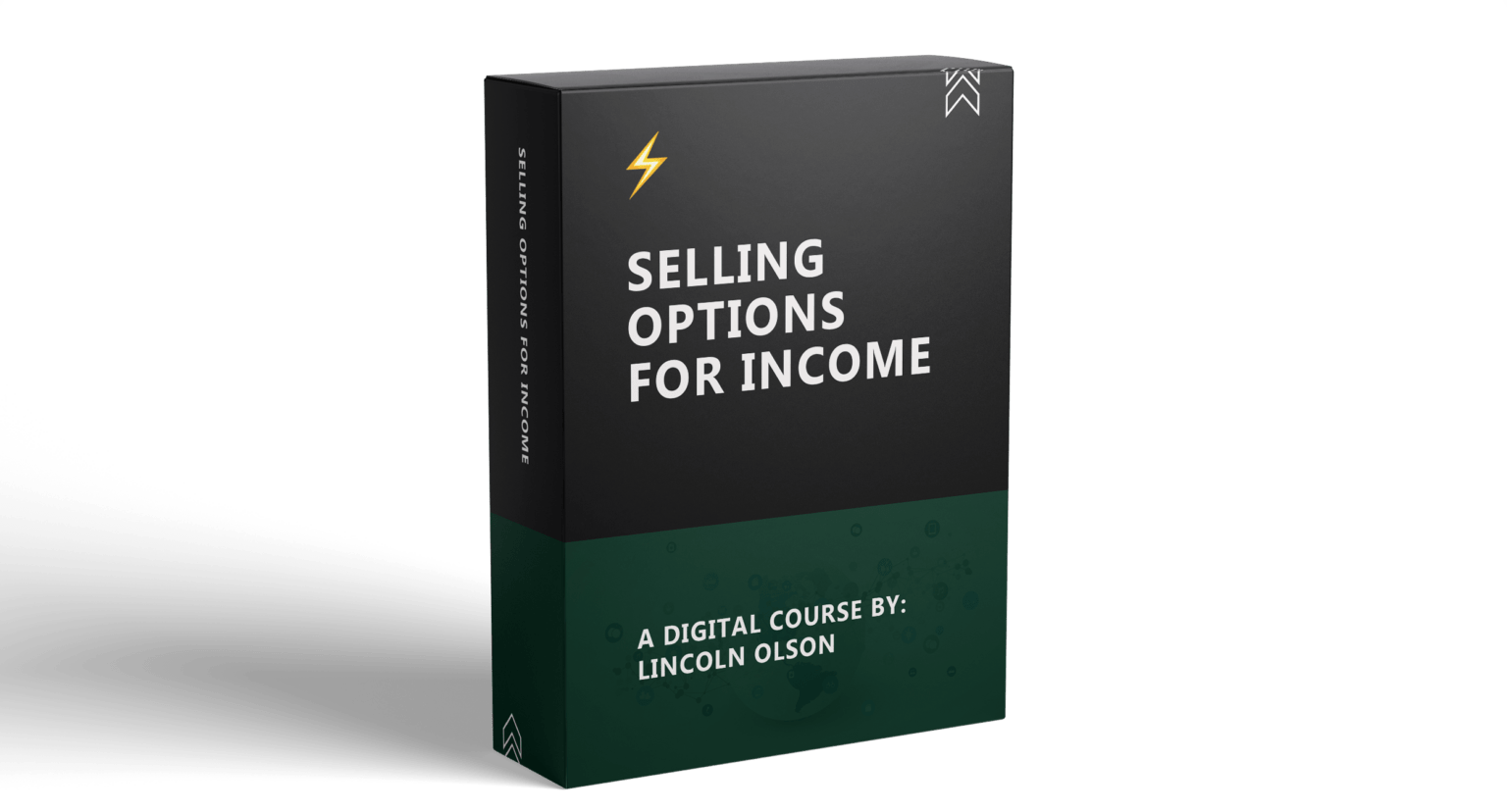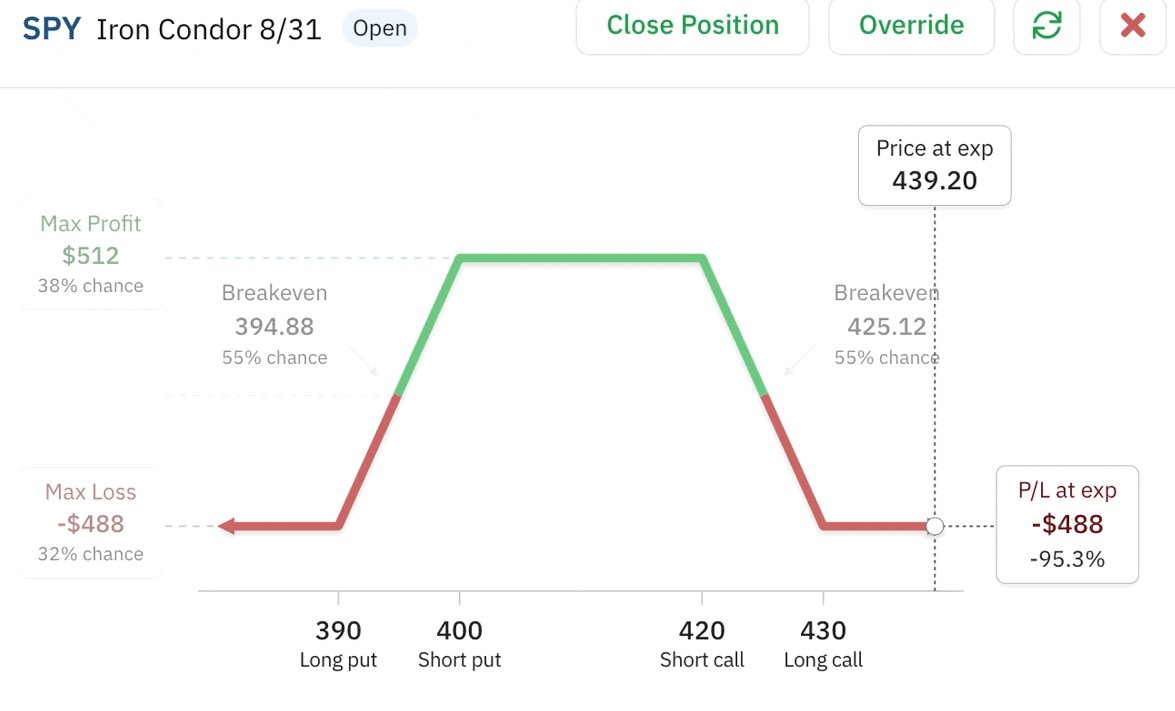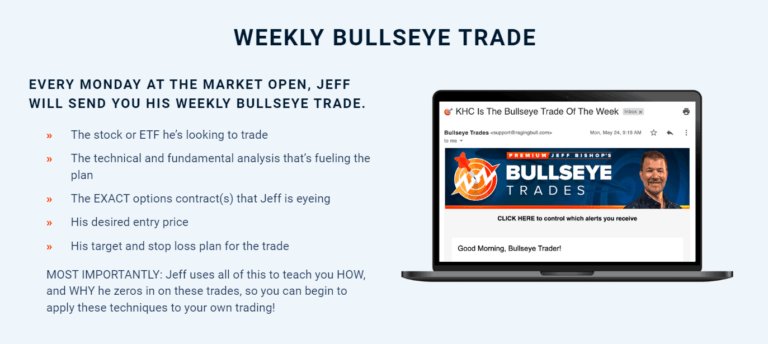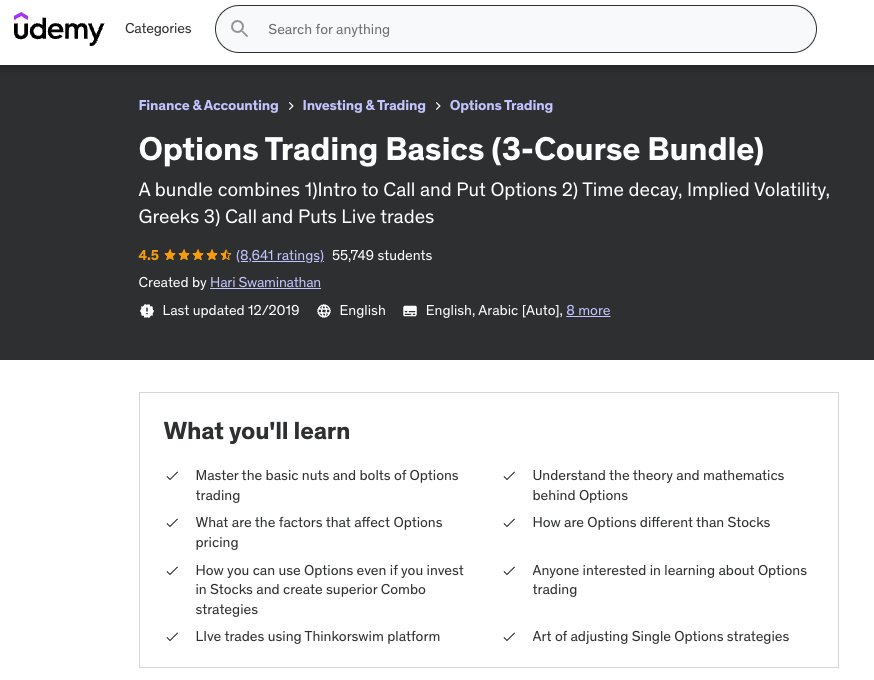The 7 Best Options Trading Courses

The draw toward trading options is obvious. If done well, you can generate higher returns faster than you can trading stocks.
But trading options isn't easy.
Unlike stocks, options contracts have strike prices, expiration dates, implied volatility, prices, and Greeks, which all affect the price (the “premium”) of the contract.
This additional complexity is part of the reason why the vast majority of options traders lose money.
I've been trading options — both buying and selling — for the last 7 years. I made a lot of mistakes in the beginning and took some unnecessary losses, paying my “ignorance tax” through trial and error.
In retrospect, I wish I would have signed up for a few courses when I was starting out. It would have saved me a lot of money, time, and frustration.
This is why I've put together this article — so you don't have to make the same mistakes I did.
Here's my list of the 7 best options courses available today.
Disclaimer: Trading options is risky and complex. Be sure you know your max risk and understand all of the implications before placing a trade.
A quick look at the best options courses
| Course | Our Rating | Takeaway | Cost |
| Benzinga Options | Best overall | $297/year | |
| Selling Options for Income | Best for learning how to sell options | $79 | |
| Charles Schwab | Best free option | Free | |
| YouTube | Best for general info | Free | |
| Option Alpha | Best free, curriculum-based training | Free | |
| Bullseye Trades | Best for swing trading | $147/year | |
| Udemy | Best paid course for beginners | ~$20 |
1. Benzinga Options: best options learning platform overall
- Our rating:
- Cost: $297/year
Pros
- Learn directly from Benzinga's options guru, Nic Chahine
- Receive biweekly real trade alerts, not theory
- Education, analysis, and explanations for each trade
Cons
-
Somewhat expensive (it's a membership, not a course)
Assuming your goal is to learn how to make profitable options trades as quickly as possible, Benzinga Options is my top recommendation.
This isn't an e-course; it's an alert service produced by a highly profitable trader, Nic Chahine. But, unlike most alert services, Nic's goal is to help you become an independent options trader.
That's why, along with every trade alert, Nic provides his analysis and a full explanation of the trade, so you can learn the exact reasons why he's making each trade.
These are Nic's trades that he's taking with his own money, following his own rules and strategies, which he explains. He both buys and sells options, individual contracts, and spreads, and tells you why he's doing it.
If you're totally new to options, don't worry. The trades are easy to follow and implement, and each trade can be tailored to any account size — though I'd recommend having at least $1,000 to dedicate to options.
Plus, he only recommends two trades per month, so it's not too fast-paced to learn as you go.
While the whole membership can be a little intimidating at first, this is the fastest way to learn the ins and outs of options trading from a very profitable trader.
Simply put, I think it's the best way to learn options trading.
Benzinga Options also ranks #3 on our list of the best options alert services.
2. Selling Options for Income: best for learning how to sell options
- Our rating:
- Cost: $79
Pros
- Simple strategies, with defined risk, for consistently profitable trades
- Learn techniques so you never fear assignment
- Cover the cost of the course on day one
Cons
- You should have a basic understanding of options
- Best for accounts with $10,000+
As I mentioned in the introduction, I've been trading options for the last 5 years. Over that time, I've tried countless strategies, taken 10+ courses, and read every book I could get my hands on.
After all of that experience, I've come back to two of the simplest options selling strategies out there: covered calls and cash-secured puts.
I came up with a unique system for selling them, which allows me to:
- Make simple, low-stress trades
- Never fear assignment or losing trades
- Make money from my existing portfolio without changing any asset allocations
After training a handful of people — including two financial advisors — on my approach, I was encouraged to create a course and share it with more people.
This is the result.
In my opinion, this is the right way to sell options. It just so happens to be quite simple, once you see the “Golden Rule” I teach.
Over the last 4 years, this strategy has averaged a 89.8% win rate and a 6.61% annualized return. And remember, I didn't change anything about my underlying portfolio, so that's in addition to what my portfolio would have done anyways.
3. Charles Schwab: best free options education
- Our rating:
- Cost: Free
Pros
- Free
- A complete library on options
Cons
- Will teach you how options work, but not how to make winning trades
- The amount of information they provide can be overwhelming
- Requires a Charles Schwab account
Charles Schwab has a massive library of high-quality investing resources available to its clients.
Resources include video walkthroughs, articles, podcasts, and in-person events on topics like market news, personal finance, investing, retirement planning, day trading, and more.
Schwab has something for everyone, regardless of experience level. And all you need to do to access them is open a brokerage account, which is free.
You can see all of its options material here.
Plus, while you're there learning about options, you might also stumble across a retirement planning seminar that changes how you're preparing for your future.
Schwab's library is one of the most underrated resources for investing and managing your money.
4. YouTube: best for general information
- Our rating:
- Cost: Free
Pros
- Free
- Endless resources
Cons
- No curriculum or structure
- Too many choices and strategies
- No way to know for sure if you're learning from someone with experience
This isn't a specific course recommendation, but YouTube belongs on this list.
Even after completing one of the courses in this article or reading a few books on the topic, you'll have questions, and the answers to those questions will lead to more questions.
I would estimate you'll need to spend 10–20 hours studying options before you become somewhat familiar with them. For this, there's no better resource than YouTube.
There are hundreds of helpful videos on YouTube that will further your options education. That said, there are also some bad ones created by people who do not consistently trade options and/or don't fully understand what they're talking about.
As a beginner, it can be hard to distinguish between someone who really knows options from someone who doesn't, so be careful.
A few good channels for learning options are
My recommendation: Pick one of these channels, watch a bunch of their videos in a row, and try to absorb as much information as you can.
5. Option Alpha: best free, curriculum-based trainings
- Our rating:
- Cost: Free
Pros
- Free
- Excellent educational material
- Can take you from a beginner to a fairly advanced trader
Cons
-
Pushes you to sign up for their bot-trading system
For the best free options trading course on intermediate selling strategies, head to Option Alpha.
Incidentally, I first learned about trading and selling options from the Option Alpha podcast back before it had an actual online curriculum.
The material was excellent, but it wasn't for beginners — I was often confused by the jargon and couldn't keep up with all of the different components of their strategies.
I was scrambling to pause the podcast, scribble down notes, and look up words I didn't know.
Fortunately for you, you can just take their courses, which walk through many complex topics and strategies in simple ways.
Option Alpha offers beginner, intermediate, and advanced courses.
In total, it's about 15 hours of content. In addition to the courses, Option Alpha also has downloadable PDFs, simple explainers, and other helpful resources.
The reason Option Alpha isn't higher on this list is because they push you toward signing up for their automated, bot-based trading system.
While the educational material is great, most of the website is designed to get you to upgrade to their premium services.
Plus, once you get into the later courses, they start focusing more and more on the strategies they sell. Still, the free courses are excellent and deserve a spot on this list.
6. Bullseye Trades: best options membership for swing trading
- Our rating:
- Cost: $147/year
Pros
- Learn from RangingBull's head of options trading, Jeff Bishop
- Uses both fundamental and technical analysis
- 1x trade alert per week
Cons
- Trade explanations aren't as detailed as those in Benzinga Options
- No real plan to help you become an independent trader
Similar to Benzinga Options, Bullseye Trades is another options alert service run by a very successful trader that also has an educational component.
Jeff Bishop is the co-founder of RagingBull and the author of Bullseye Trades. He has a degree in finance, a master's in economics, and has been trading options for over 20 years. A few years ago, he brought that experience to his subscribers.
Every Monday, subscribers receive an alert and accompanying analysis — including trading charts — of a trade he's putting on for that week. He also shares a trade update in the middle of each week.
In addition to the alerts and analysis, there is a “Launchpad Training” video series to help beginners understand options and how Bishop approaches trades.
While there's less educational material than Benzinga Options offers, this is still one of my favorite ways to learn. You can pick up and apply a ton of practical information from being in a service like this and being able to learn from a very profitable trader.
7. Udemy: best paid options course for beginners
- Our rating:
- Cost: ~$20
Pros
- Affordable
- Choose your own courses
Cons
-
You'll have mastered the basics of options trading but you'll be looking for other materials with real strategies to deploy once you're done
More than 56,700 people have taken the Options Trading Basics courses on Udemy, and it has racked up 4.4 stars from 8,770 ratings.
As its name suggests, this course bundle was created to help you “master the nuts and bolts of options trading.”
You'll learn about how options are different from stocks, the factors that affect options pricing, the theory and mathematics behind options, and a handful of simple strategies.
The course is a monster. It includes 11.5 hours of video and 7 downloadable resources. If you're looking for one course to learn everything you need to know about how options work, this is it.
That said, it would be better with more real-life applications — most students mention they needed to buy additional courses before they could start trading options on their own.
Know before you go: a word of caution
Trading options is risky. Regardless of which options trading course you choose, I cannot emphasize this enough: start slowly.
This is especially true when it comes to selling options, which can result in “naked” positions and lead to nearly unlimited losses, similar to shorting stocks.
Before you place any options trade, either buying or selling, be sure you know the max risk of the trade and understand all of the implications.
If you don't know what your max risk is or how to calculate it, keep studying.
Helpful tipThis is something Kirk from Option Alpha explains very well in his Beginner Courses.
How we chose the best option trading courses
When evaluating investing products and services, we take the following into consideration:
- Core offering: How good the product or service is.
- Cost: The overall price, value for money, average cost per month, and any hidden fees.
- Usability: How well the course is designed, whether it's easily digestible and easy to navigate, and how responsive the support is.
- Credibility: The quality of information and data, as well as brand reputation.
- Audience: Who the product is for, the range of uses and applications, whether it actually works for its target audience, if it's the best option available, and any limitations therein.
- Offers: Whether there is a special offer for signing up or any discounts.
Final verdict
Trading options is extremely complex — there are a lot of moving parts — and it's easy to get in over your head. The resources I listed above are some of the best ways to learn about options.
If I were starting from scratch, these are the materials I'd choose from to save myself time, money, and a lot of frustration.
Here's one last piece of advice.
There are hundreds of options trading strategies out there, so don't fall into the trap of bouncing from strategy to strategy and then get frustrated because none of them “worked.”
You've got a better chance of getting good results by finding one strategy that fits your investing strategy and then taking the time to master it.


.png)








